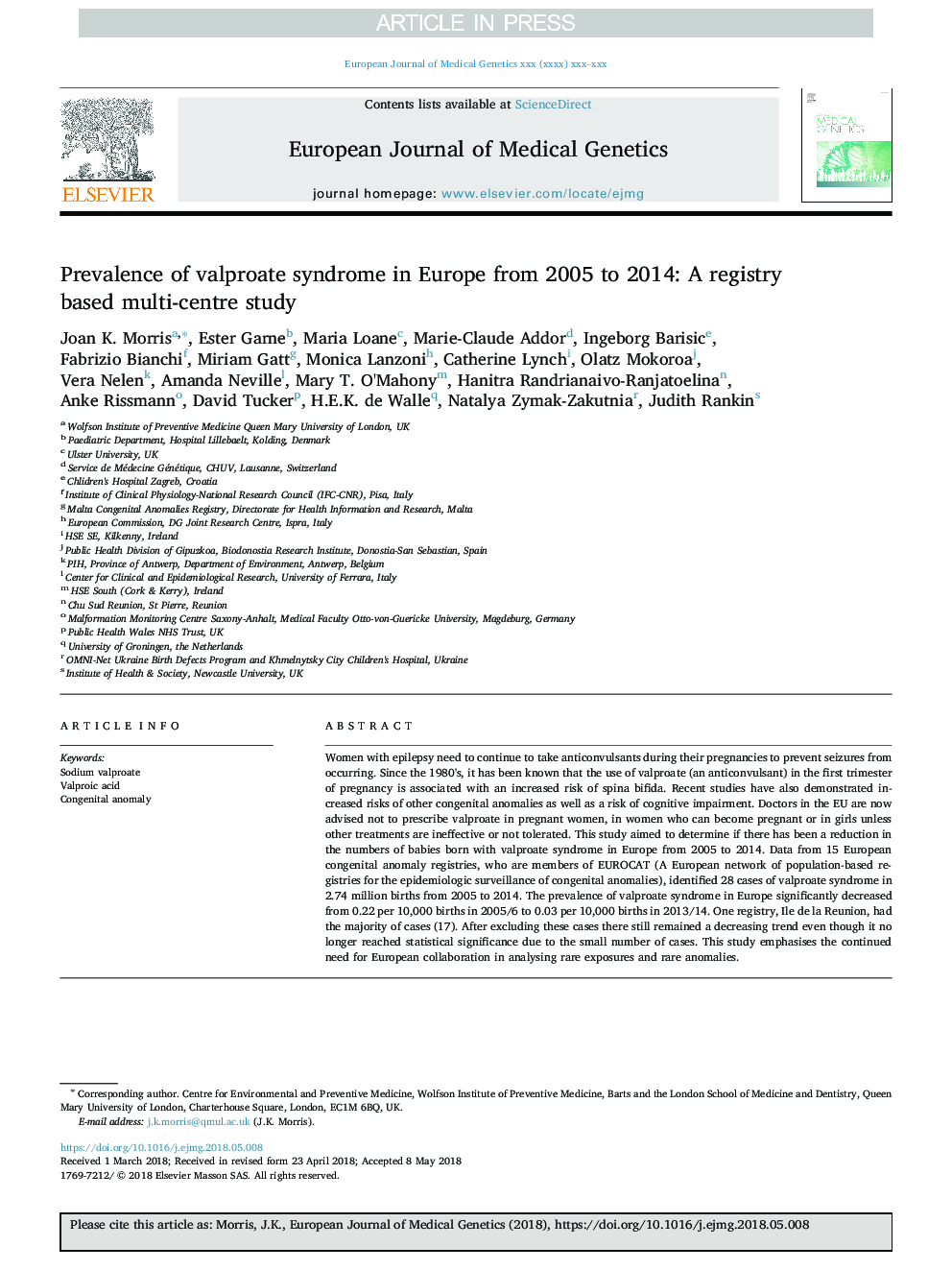| Article ID | Journal | Published Year | Pages | File Type |
|---|---|---|---|---|
| 10212336 | European Journal of Medical Genetics | 2018 | 4 Pages |
Abstract
Women with epilepsy need to continue to take anticonvulsants during their pregnancies to prevent seizures from occurring. Since the 1980's, it has been known that the use of valproate (an anticonvulsant) in the first trimester of pregnancy is associated with an increased risk of spina bifida. Recent studies have also demonstrated increased risks of other congenital anomalies as well as a risk of cognitive impairment. Doctors in the EU are now advised not to prescribe valproate in pregnant women, in women who can become pregnant or in girls unless other treatments are ineffective or not tolerated. This study aimed to determine if there has been a reduction in the numbers of babies born with valproate syndrome in Europe from 2005 to 2014. Data from 15 European congenital anomaly registries, who are members of EUROCAT (A European network of population-based registries for the epidemiologic surveillance of congenital anomalies), identified 28 cases of valproate syndrome in 2.74 million births from 2005 to 2014. The prevalence of valproate syndrome in Europe significantly decreased from 0.22 per 10,000 births in 2005/6 to 0.03 per 10,000 births in 2013/14. One registry, Ile de la Reunion, had the majority of cases (17). After excluding these cases there still remained a decreasing trend even though it no longer reached statistical significance due to the small number of cases. This study emphasises the continued need for European collaboration in analysing rare exposures and rare anomalies.
Related Topics
Life Sciences
Biochemistry, Genetics and Molecular Biology
Genetics
Authors
Joan K. Morris, Ester Garne, Maria Loane, Marie-Claude Addor, Ingeborg Barisic, Fabrizio Bianchi, Miriam Gatt, Monica Lanzoni, Catherine Lynch, Olatz Mokoroa, Vera Nelen, Amanda Neville, Mary T. O'Mahony, Hanitra Randrianaivo-Ranjatoelina, Anke Rissmann,
